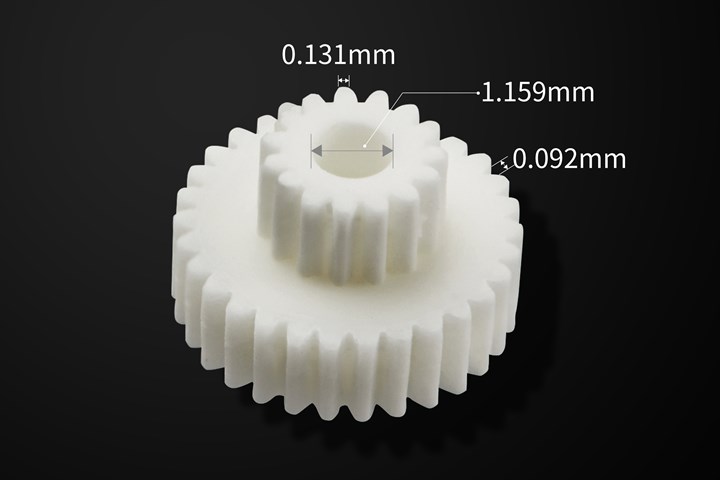Additive Manufacturing: New Micro-Precision 3D Printer for Industrial Production
The printer has the ability to print industrial-grade composite polymers and ceramics, including an all-new functional engineering material developed in cooperation with BASF.
Boston Micro Fabrication (BMF), a provider of microscale 3D printing systems, has launched the microArch S240, the reported first and only micro-precision 3D printer designed to meet the needs of short-run industrial production.
The microArch S240 is built upon BMF’s patented Projection Micro Stereolithography technology or PµSL, a technique that allows for rapid photopolymerization of an entire layer of liquid polymer using a flash of UV light at micro-scale resolution. This production of intricate, exact, and replicable parts makes PµSL optimal for end-part and prototyping use cases across a wide range of industries, including medical device manufacturing, microfluidics, MEMS, biotech and pharma, electronics, education, and research and development.
ThemicroArch S240 has a larger build volume (100 X 100 X 75MM / 750 cm3) and up to 10 times faster print speeds, enabling the production of bigger parts, or a higher throughput of smaller parts, while achieving the same 10 µm resolution, +/- 25 µm tolerance as other BMF printers. Users can print using a number of industrial-grade materials with attributes, including mirror finishes, sharp edges and smooth channels, that are suitable for end-use applications or prototypes meant to seamlessly mirror end parts.
Additional features include the ability to print industrial-grade composite polymers and ceramics, including an all-new functional engineering material developed in cooperation with BASF. The BMF RG material from the Forward AM Ultracur3D photopolymer resin line is being introduced for use on the microArch 240 with high strength and durability properties meeting the needs of production applications.

3D-printed ceramic gear part.
Related Content
-
Daimler, OMIC Evaluate Wire-Fed DED for Moldmaking
3D printing a core and cavity on machine from Gefertec, followed by machining, allowed for a complete mold tool to be produced in three days.
-
New Tool Steel Qualified for Additive Manufactured Molds and Dies
Next Chapter Manufacturing says HTC-45 — an optimized H-13 — will offer superior thermal transfer and longer tool life.
-
3D Printing of Injection Molds Flows in a New Direction
Hybrids of additive manufacturing and CNC machining can shorten tooling turnaround times.












